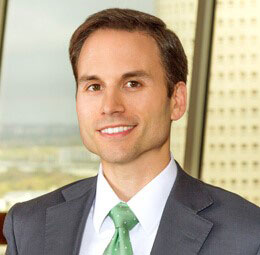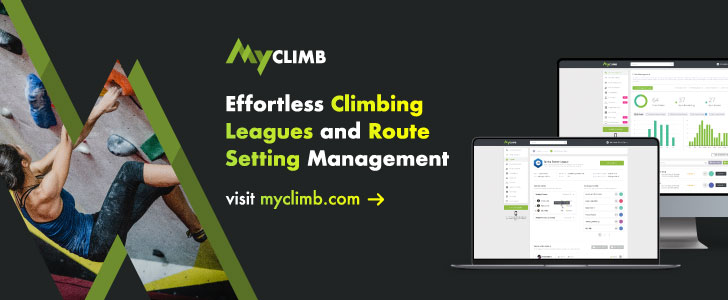Ask A Lawyer is a recurring column where attorney Jason Pill answers questions submitted by people who work in the climbing industry. For this edition, Pill dives into the question of what gyms should consider when hiring in the age of COVID. Got a legal question that you’d like him to tackle about your gym, your employees, or anything else in the wide world of climbing? Submit your legal question here.

QUESTION: As a gym owner and manager, I am wondering whether the ongoing COVID-19 pandemic changes the hiring process at all. Specifically, are there any issues or concerns that I should be addressing with potential hires (such as during the interview process) that I would not have addressed, say, six months ago or so?
PILL: Like many things during this period, COVID-19 has changed hiring for companies as well. Most commentary on this issue has focused on the evolving labor market and how job seekers may change their preferences—perhaps eschewing pricey (and cramped) cosmopolitan living in favor of less expensive (and more spacious) living in smaller cities. Such articles, though, presuppose that workers can perform their job remotely and, thus, can choose where they want to be located while they’re working.
For climbing gyms, that luxury usually does not exist, as very few workers can perform their job duties remotely—and the overwhelming majority of workers need to be physically present at the gym to perform their job (e.g., front desk staff, belay instructors/monitors, routesetters). So, while most climbing gyms aren’t expecting to see a variance in their applicant pool or workforce composition, COVID-19 still has had a significant impact on hiring. The logistics of the hiring process have changed, and new considerations present themselves, while many old issues remain, but are easy to overlook.
The Process for Conducting Interviews Has Changed.
The most prominent change for climbing gyms is that the majority of interviews are transitioning to a remote process (i.e., Zoom and Skype) that facilitates social distancing. Obviously, remote interviews can save some time and streamline the process, but remote interviews might not be ideal for all interviews, especially those requiring demonstration of a specific skill (such as tying knots, belaying, etc.) or for more critical roles within the gym.
A common pitfall with remote interviews—and also with remote work, for that matter—is the assumption that legal obligations or company policies are lessened because of the more casual format. Gyms must remember that hiring formalities—and all the accompanying legal obligations—apply with equal force whether the interview is conducted in-person, over the telephone, through text messages, via Zoom, and so forth. This is critical because job applicants, even those who you do not select, can bring a lawsuit against the gym. Litigation is not confined to current and former employees.
The logistics, though, are not the only element of hiring that has changed. COVID-19 considerations now permeate gyms’ daily, if not hourly, decision–making process, and may have a role during hiring. However, certain interview questions can be problematic and potentially expose a gym to legal risks, even if asked with the best of intentions.
Can I Ask COVID-19-Related Questions During an Interview?
The short answer: Yes, but at your own peril. Generally speaking, gyms face numerous restrictions on obtaining information about applicants during the pre-employment process. When dealing with COVID-19 during an interview, the most likely areas of concern would be questions that run afoul of the Americans with Disabilities Act (ADA) or the Occupational Safety and Health Act (OSHA) by soliciting improper information that suggests ulterior motives.
In terms of the ADA, improper questions would include questions that solicit information about an applicant’s disability, actual or perceived, and whether that disability may impact the applicant’s ability to perform the job (because the ADA provides coverage for “perceived disabilities,” gyms must be especially cautious about assuming that an applicant has a disability based on information from the applicant’s resume or some visual cue). If not asked correctly, questions that implicate an applicant’s disability can appear to be a nefarious tool used to filter out applicants with a disability. This clearly would violate the ADA, which is why discussions about disabilities should generally be avoided to prevent any confusion between the gym and the applicant. Improper questions include:
- Are you disabled?
- What is the nature of your disability?
- Are you taking any prescriptions?
- Have you filed any workers’ compensation claims?
A proper question, instead, would be to ask if the applicant is able to perform the essential functions of the job. The applicant’s response may be very similar, and perhaps identical, to the response that would be given to some of the improper questions identified above, but the focus is on the essential functions of the job—and the gym is not soliciting information about the applicant’s disability. There is a difference between information that a gym solicits and information that an applicant volunteers without prompting.
More specific to COVID-19, some gyms may be tempted to ask applicants about their willingness to work under certain safety conditions in the gym, based on the reality that the gym cannot eradicate all risks of contracting COVID-19. While most safety standards issued by state and federal agencies are permissive guidance, as opposed to mandatory requirements for gyms, asking about safety issues can be dicey because certain questions could make it appear as though the gym is trying to screen out potential whistleblowers or otherwise skirt its obligations to provide its employees with a workplace free of serious recognized hazards. Safety concerns certainly are not an unlawful topic, per se, but an area that warrants caution given the numerous rights that employees have under OSHA and the National Labor Relations Act (which protects employees who engage in concerted activities regarding workplace conditions—e.g., complaining about an unsafe work environment).
Additionally, in March, Congress passed the Families First Coronavirus Response Act (FFCRA). Among other things, the FFCRA provides paid leave benefits for employees who contract COVID-19 and employees who need to stay home to care for a child whose daycare or school is closed to COVID-19. As part of the FFCRA, companies cannot retaliate against employees who may seek these paid leave benefits. That protection from retaliation extends to job applicants, so gyms will need to avoid any questions that could come off as the gym’s attempt to determine whether the applicant would need FFCRA leave; this is because a denied applicant could allege that the gym did not hire him or her once the gym learned that the applicant may be eligible for FFCRA benefits, all in an effort to avoid the gym’s FFCRA obligations to provide paid leave.
What Best Practices Should I Consider During Interviews?
Generally, focus on the necessary qualifications and let the job requirements guide the interview. I’ve mentioned a number of questions to avoid, which may leave some gyms wondering what questions are acceptable to ask. To stay out of murky legal waters, gyms should ensure that information obtained and requested through the pre-employment process, including job applications and interviews, is limited to the information essential for determining an applicant’s qualifications for the position. It may sound like an obvious point, but the questions need to be geared towards an applicant’s ability to perform the essential functions of the job.
A number of pre-employment inquiries can expose a gym to liability if not conducted properly or for business-related reasons (e.g., improper questions that suggest a discriminatory motive is being used to filter candidates—such as a reluctance to hire older workers based on an assumption that older workers cannot keep up with modern technology or avoid workers of certain faiths because of potential scheduling complications). Questions asking about the applicant’s personal life, medical history, age, faith, etc., often have no benefit to the job hiring process, and can improperly lead an applicant to believe those criteria are being used to select an applicant for the open position. Gyms can decline applicants for a good reason or a bad reason—it just cannot be a discriminatory reason.
That said, the focus of the interview should be the job requirements and necessary qualifications, skills and characteristics, and the job description often will serve as a helpful roadmap. Gyms should try to standardize the interview to avoid excessive latitude that could veer toward unlawful questions, and focus on objective and job-related information only. As noted above, instead of asking whether an applicant has any disabilities that would compromise his or her ability to perform the job, show the applicant the job description and ask whether he or she would be able to perform the essential job functions, with or without a reasonable accommodation. This may seem like a small change, but it alters the optics of the situation and prevents a gym from being in a position where it appears to be soliciting protected information that could be used for discriminatory purposes. Small tweaks like that can go a long way during the hiring process to better insulate gyms for legal exposure.
Along those lines, whether conducting an in-person or virtual interview, the gym should only make notes of job-related information. Notes from an interview can become evidence in a lawsuit one day if an applicant challenges a hiring decision and brings a lawsuit. So, if you are taking notes, make sure you would be comfortable with producing them in discovery one day to the applicant-turned-plaintiff. If you aren’t comfortable, don’t take notes.
The legal standards applicable to hiring do not change during a pandemic, but it’s all too easy to overlook these obligations when conducting a remote interview (perhaps from your own living room) or trying to navigate these unprecedented COVID-19 issues. As gyms continue reopening, they inevitably will bring back laid off employees and slowly begin hiring new ones. COVID-19 has changed the hiring process in many ways, but the legal obligations remain the same, and in fact, are heightened in some instances. Remain vigilant and don’t be tempted to treat Zoom interviews as something less formal or otherwise lacking all of the usual legal obligations.
Best of luck to all gyms reopening and bringing back staff.
Note: This column offers general advice and is not intended to be used as direct legal counsel. Gym owners should consult a lawyer for their facility’s specific legal matters. Pill can be contacted directly here.

Jason Pill is a longtime climber and an attorney with Phelps Dunbar, LLP in Tampa, Florida. He practices in the area of Employment Law by advising clients, including climbing gyms, on workplace issues and representing clients in state and federal court when litigation becomes unavoidable. Additionally, Jason managed a climbing gym before embarking on a legal career, and he currently serves on USA Climbing’s Board of Directors and as the Chairperson of USA Climbing’s Ethics Committee.










